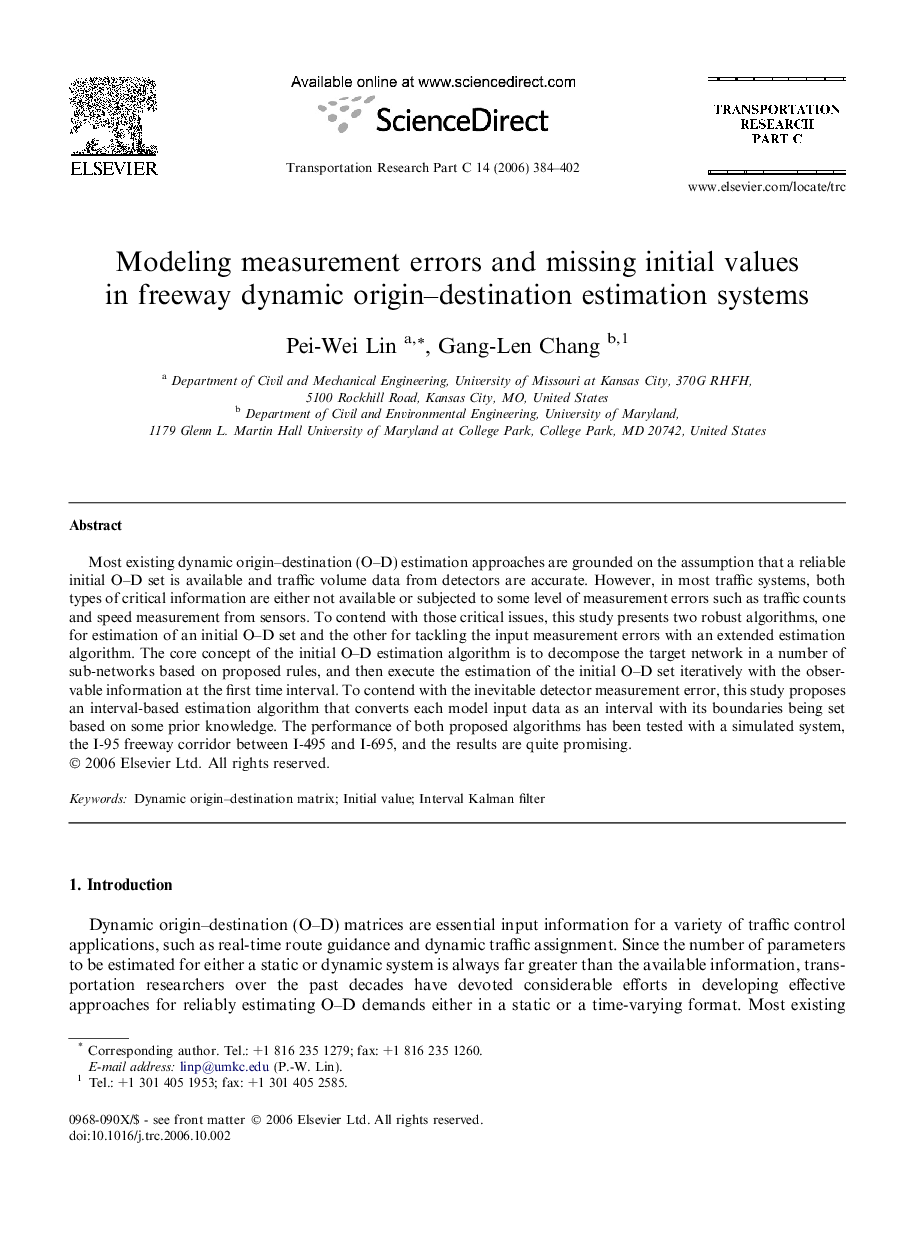| Article ID | Journal | Published Year | Pages | File Type |
|---|---|---|---|---|
| 525531 | Transportation Research Part C: Emerging Technologies | 2006 | 19 Pages |
Most existing dynamic origin–destination (O–D) estimation approaches are grounded on the assumption that a reliable initial O–D set is available and traffic volume data from detectors are accurate. However, in most traffic systems, both types of critical information are either not available or subjected to some level of measurement errors such as traffic counts and speed measurement from sensors. To contend with those critical issues, this study presents two robust algorithms, one for estimation of an initial O–D set and the other for tackling the input measurement errors with an extended estimation algorithm. The core concept of the initial O–D estimation algorithm is to decompose the target network in a number of sub-networks based on proposed rules, and then execute the estimation of the initial O–D set iteratively with the observable information at the first time interval. To contend with the inevitable detector measurement error, this study proposes an interval-based estimation algorithm that converts each model input data as an interval with its boundaries being set based on some prior knowledge. The performance of both proposed algorithms has been tested with a simulated system, the I-95 freeway corridor between I-495 and I-695, and the results are quite promising.
